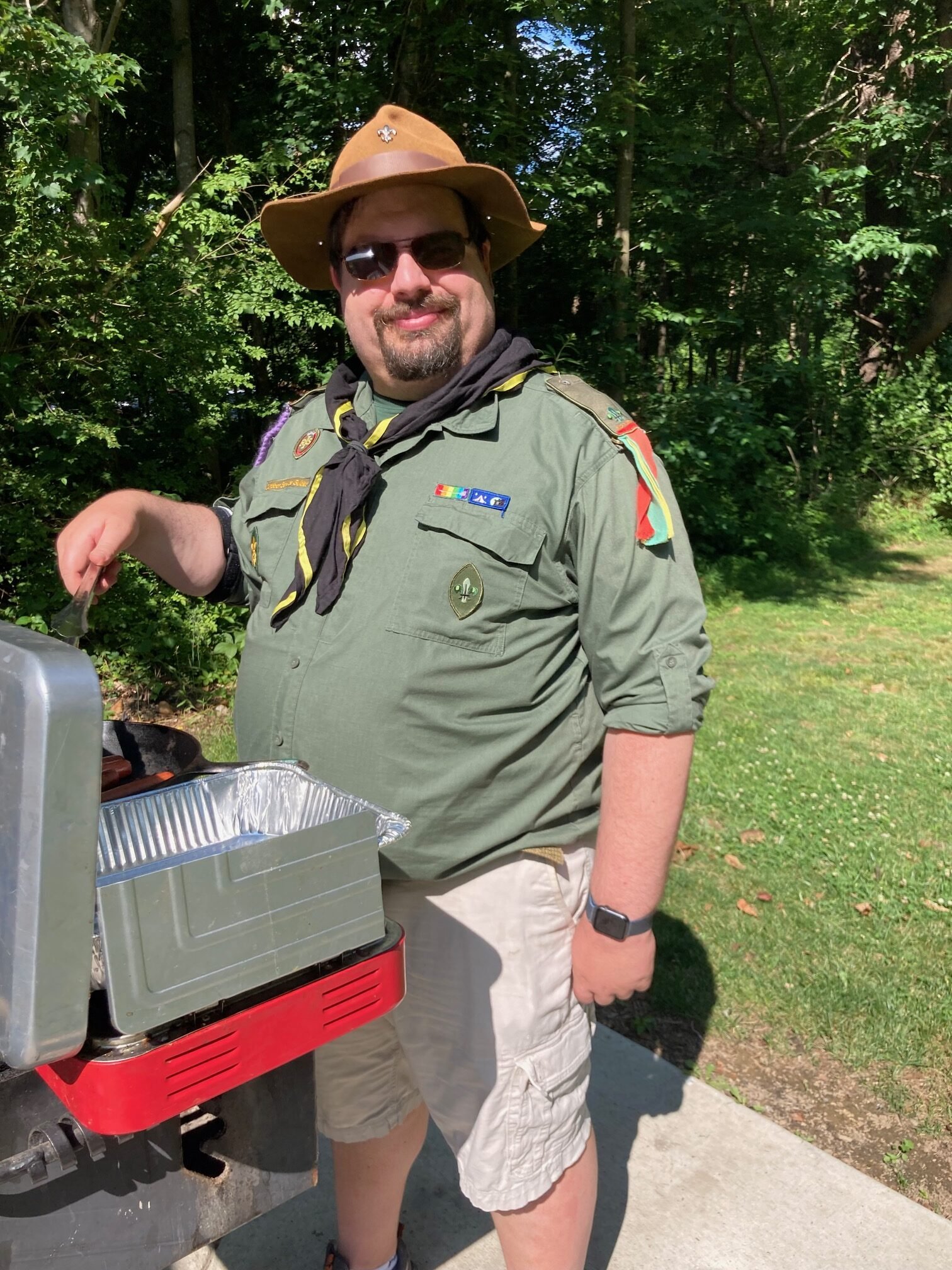The jobs of a GSM- and how to share them
The role of Group Scoutmaster is not a small job. Often a GSM is wearing many many hats so that the members of their group can not only participate with Outdoor Service Guides, but so that they can have a quality program. In a small group, the list below may be done by just one or 2 people. Which can lead to burn out. As your group expands and grows, it is important to share these jobs and wear fewer hats. Some groups have a group auxiliary that shares these roles, while others require every parent complete a job to keep the group running.
However your group divides this work, this list is here to get you started talking about all the things that it takes to run a great OSG group. Your group may have more jobs, or choose to have multiple of these jobs done by a single very dedicated person. Keep in mind, burn out among volunteers is real, and the more hats a single person wears, the more likely they are to burn out.
Share the load, to give your group the best longevity possible.
Jobs we do to run an OSG Group
Treasurer: Collects dues, reimburses leaders, may need to pay for events like camp site rentals. Needs to be able to keep a check on how much money the group has for when the guides ask if they can do something.
Fundraiser Coordinator– Coordinates fund raisers for and with the group. This post has ideas for fund raisers appropriate for OSG groups.
Camping Coordinator: Shops and preps for camp, selects and rents campsites, plans activities and makes sure that scouts and leaders at camp are accounted for. May create the schedule or help the rest of the group stay on schedule. May also MC the campfire, plan all ages activities and is aware of where all the gear, first aid supplies and foods is located.
Field Trip Planner: Makes calls to locations like the Fire Station, Animal shelter, or other interesting places, to coordinate guides visiting those places. Sets dates and double checks with leaders to make sure the dates is approved by the group. This role may be shared by several people if your group has many events to coordinate.
Run One Age Level: Plan and execute both meetings and camping trips and other events for your age level. This requires studying the books and resources for that age level, planning badge work, tracking badge work, and bringing needed supplies to each meeting or camping trip. 
Secretary: Keeps the group calendar and posts reminders on social media and sends emails to parents.
Registrar: Keeps up with registration information and coordinates registration with the national registration dashboard.
Big Hat: Starts and ends all meetings with opening and closing. Hands out badges and handshakes. Shares knowledge with all age levels.
Community Service Coordinator: Plans and creates community service events that are appropriate to the group.
Quartermaster: Orders badges, uniforms and group gear and keeps up with all of it.
Camp Food QM: This Rover may help set the menu, or may just use the menu created by leaders and guides. They obtain all food needed for campouts. Packs it up, and gets it to camp in coolers and containers. This person may or may not also be required to divide food into quantities to distribute to age groups or patrols.
Greeter: Greets potential new members and answers questions about group membership. This is usually done through emails, phone calls and greeting them at meetings. It is very hard to do this job and greet new members at meetings while also running an age group.
Overseer: Reviews short and long term plans with section leaders and makes sure they have the training, equipment and skills needed to move forward. Makes sure everyone has 2 deep leadership at all times. Keeps an eye on the big picture and also makes sure that leaders are trained and have reviewed youth protection and safety policies at least annually.
Substitute Leader: This person jumps in to save the day if a leader is absent for a specific age group. Because we must ALWAYS have 2 deep leadership present to do activities with scouts, having a substitute who is background checked and trained on at least youth safety, is often necessary to prevent needing to cancel when leaders get sick or are otherwise unable to attend.
Your Team
In addition to these roles, each group is required to have a minimum of 2 leaders per age level who are background checked and appropriately trained. Many groups have primary leaders and assistant leaders who split the work of planning and supervising their age level. These leaders and their spouses may be the most likely group to take on doing some of these jobs.
It is also beneficial to plan which of these tasks need done for your scouting year in advance. Hosting an annual or biannual planning meeting with all of your leaders and interested parents can help your scouting year run more smoothly. Get more insight into planning a scouting year on this post.
